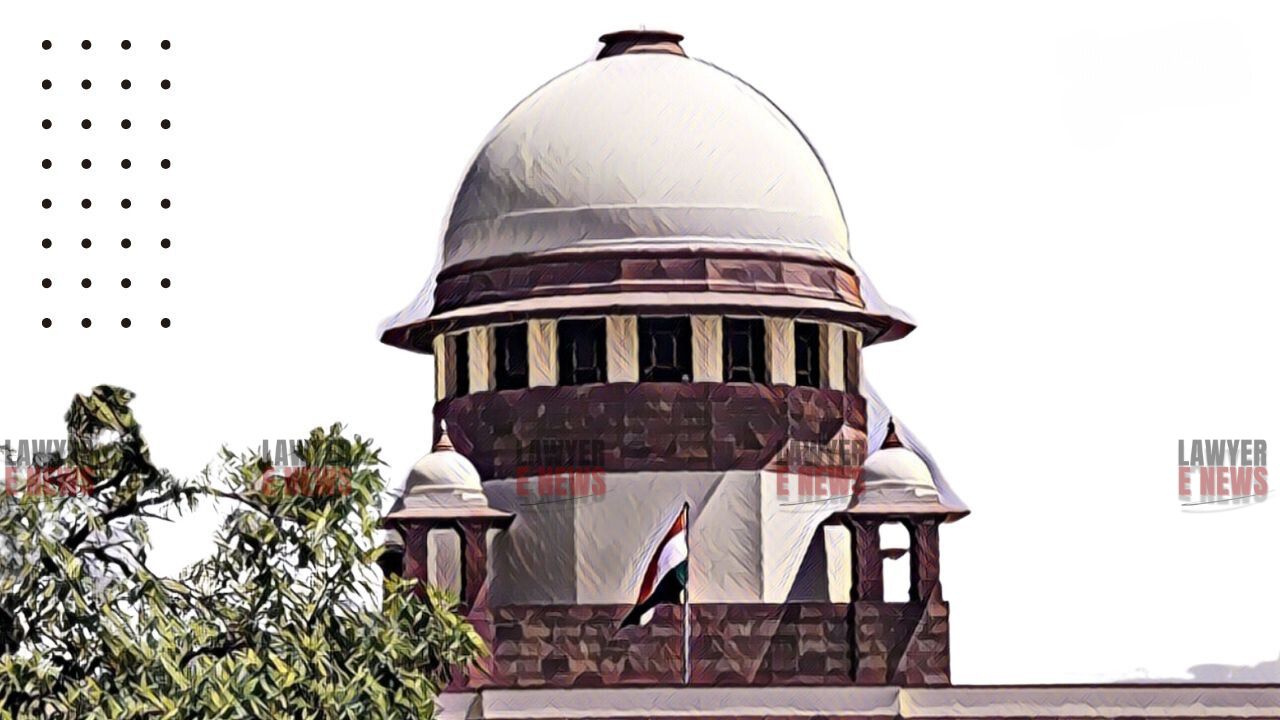-
by Admin
15 February 2026 5:35 AM



In a landmark decision on October 15, 2024, the Supreme Court of India enhanced the compensation awarded to Chandramani Nanda, a motor accident victim, to ₹52.31 lakh from the ₹30.99 lakh awarded by the High Court. The Court ruled that Nanda, who sustained severe brain injuries, is entitled to 100% compensation for loss of future earnings due to his total functional disability, despite being assessed with 60% physical disability. The judgment emphasized that the lower courts had failed to consider key factors, including future medical expenses, future attendant costs, and loss of marriage prospects, which merited further enhancement.
"Functional Disability at 100% Requires Full Compensation for Loss of Future Income"
In a crucial observation, the Supreme Court ruled that though Nanda was medically assessed with 60% physical disability, his neurocognitive impairments resulting from the accident had rendered him 100% functionally disabled. This means he could no longer engage in gainful employment or lead a normal life. The Court noted:
“Even if the physical disability is assessed at 60%, the neurocognitive impairment suffered by the appellant entails 100% loss of earning capacity due to functional disability.”
The accident occurred on January 16, 2014, when the appellant, Chandramani Nanda, along with three others, was traveling in a car that was hit by a bus driven recklessly on NH-55 near Anugul, Odisha. The collision resulted in severe injuries to the occupants of the car. Nanda, who suffered grievous head injuries, underwent brain surgery and was hospitalized for nearly a month. Despite initial medical care, his condition deteriorated, leaving him mentally impaired and bedridden.
Nanda filed a compensation claim of ₹30 lakh before the Motor Accident Claims Tribunal (MACT). The Tribunal awarded him ₹20.60 lakh after considering his medical bills and loss of earning capacity due to his 60% physical disability. Dissatisfied, Nanda appealed to the High Court, which increased the award to ₹30.99 lakh but still assessed his functional disability at only 60%. Nanda further appealed to the Supreme Court for a higher compensation, asserting that his actual earning capacity was completely destroyed.
The primary legal questions addressed by the Supreme Court were:
Assessment of Functional Disability: Whether the appellant’s neurocognitive impairment resulting from the accident, although medically assessed at 60% physical disability, justified 100% functional disability for calculating loss of future income.
Assessment of Future Prospects: Whether the lower courts had erred in calculating Nanda's income for compensation by not considering his actual income at the time of the accident and future prospects.
Compensation for Attendant Charges and Loss of Marriage Prospects: Whether the appellant was entitled to additional compensation for future attendant care and loss of marriage prospects due to his mental condition.
Nanda argued that his actual monthly income was ₹22,000 as a Branch Manager at Padma Infrastructure Private Limited, but the Tribunal and the High Court calculated his annual income at ₹1,62,420 based on older income tax returns from the year 2011-12. The Supreme Court ruled that a more realistic calculation should consider his recent income at the time of the accident in 2014, which amounted to ₹2,64,000 per year. It further enhanced this by 40% for future prospects, bringing the total annual income to ₹2,80,000 for the purposes of calculating compensation.
Given Nanda's 100% functional disability, the Court applied a multiplier of 16 (as per Sarla Verma v. Delhi Transport Corporation) based on Nanda’s age at the time of the accident (32 years). His total loss of future income was calculated at ₹44.8 lakh (₹2,80,000 x 16), substantially higher than the ₹15.59 lakh awarded by the Tribunal.
Compensation for Medical Expenses, Attendant Care, and Loss of Marriage Prospects:
The Court upheld the earlier awards for past medical expenses (₹3.51 lakh) and future medical costs (₹1 lakh). However, it awarded an additional ₹1 lakh for future attendant care, noting that Nanda’s mother, who is over 60, would not be able to care for him indefinitely, and that a permanent attendant would be required. Moreover, the Court awarded ₹1 lakh for loss of marriage prospects, recognizing that Nanda’s mental condition and disability had essentially deprived him of the ability to marry and lead a normal social life.
The Supreme Court also enhanced the compensation for pain and suffering from ₹50,000 to ₹1 lakh, acknowledging the lifelong mental agony Nanda would endure due to his debilitating condition.
Summing up the various components of compensation, the Supreme Court awarded a total of ₹52.31 lakh, which included enhanced amounts for loss of future income, future medical expenses, attendant care, loss of marriage prospects, and pain and suffering. The Court further ruled that Nanda would be entitled to 6% interest per annum on the enhanced compensation from the date of the original claim.
Date of Decision: October 15, 2024
Chandramani Nanda v. Sarat Chandra Swain & Another.
